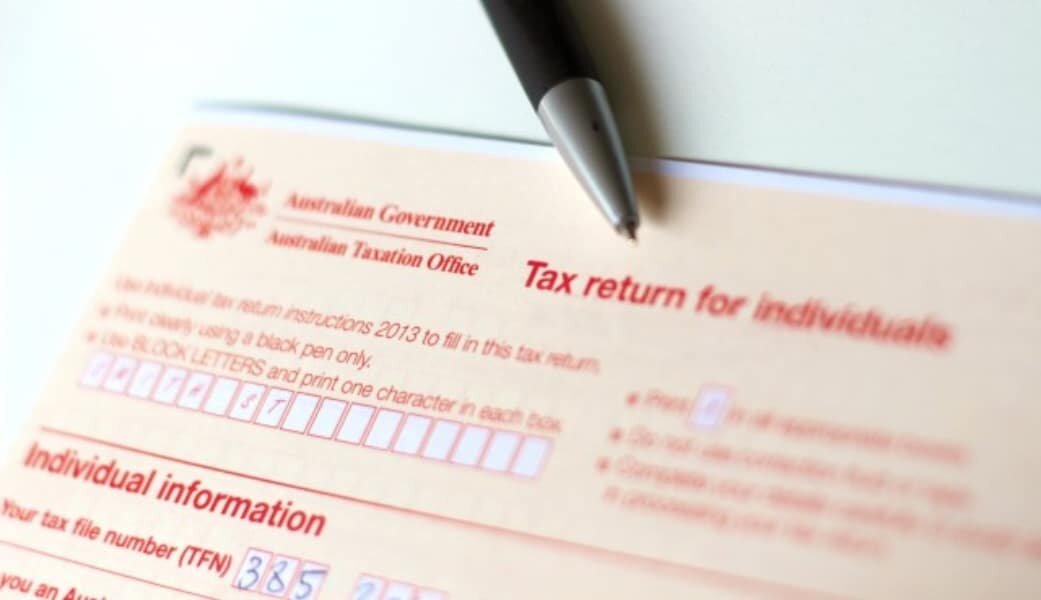The Uses of a Tax Return: Unlocking Potential Financial Savings and Guaranteeing a Larger Tax Obligation Refund
The tax obligation return offers as an essential tool for people seeking to optimize their financial end results, providing countless avenues for possible cost savings and improved reimbursements. The complexities of tax policies and the ever-evolving landscape of tax obligation regulation necessitate an extensive understanding of readily available alternatives.
Understanding Tax Reductions
Lots of taxpayers might discover themselves overwhelmed by the intricacies of tax obligation deductions, yet understanding these vital elements is critical for optimizing prospective financial savings. Tax reductions decrease taxed earnings, thus decreasing the overall tax liability for people and organizations. Acquainting oneself with the various sorts of reductions offered can substantially enhance one's capability to maximize income tax return.
Deductions can be categorized right into basic and itemized deductions. The typical reduction supplies a fixed decrease in taxed earnings, while itemized deductions allow taxpayers to mention particular expenditures, such as home mortgage interest, state tax obligations, and philanthropic contributions. Taxpayers must evaluate which choice yields the best advantage, as selecting the proper deduction approach can result in considerable financial savings.
In addition, it is essential to maintain precise documents of deductible costs throughout the tax year. This practice not only promotes the preparation of tax returns yet additionally ensures compliance with internal revenue service demands. Taxpayers need to additionally stay educated about adjustments in tax obligation regulations that may affect eligible deductions, as these can vary annually. By effectively traversing the landscape of tax obligation deductions, people can reveal the possibility for an extra desirable tax outcome and safe and secure greater economic benefits.
Discovering Tax Credit Reports
Tax obligation credits represent one more significant method for taxpayers to lower their total tax obligation liability, enhancing the benefits gained from reductions. Unlike deductions, which lower taxed earnings, tax credit scores offer a dollar-for-dollar reduction of the actual tax owed. This difference makes tax obligation credit histories specifically important for people seeking to optimize their financial savings.
There are 2 primary kinds of tax obligation credit reports: nonrefundable and refundable. Nonrefundable credit scores can lower your tax obligation responsibility to absolutely no yet not listed below that amount, while refundable debts can cause a refund if the credit scores go beyond the tax owed. Instances of frequently claimed tax obligation credit scores include the Earned Revenue Tax Obligation Debt (EITC), the Kid Tax Debt, and education-related debts like the American Opportunity Debt.
Eligibility needs for these credit scores can differ significantly, frequently based upon earnings, filing status, and particular conditions. Taxpayers should thoroughly examine the requirements related to each credit report to determine they claim all benefits for which they qualify. By tactically using offered tax debts, people can enhance their income tax return, eventually bring about substantial cost savings and possibly bigger refunds.

Spending Your Refund Sensibly
Receiving a Tax reimbursement can seem like a financial windfall, however exactly how that cash is used can profoundly impact lasting monetary wellness. As opposed to viewing your refund as disposable revenue, consider it a possibility to buy your future.

One effective option is contributing to a Specific Retirement Account (INDIVIDUAL RETIREMENT ACCOUNT) This can enhance your retired life savings while potentially producing tax advantages. Investing in a diversified stock profile can supply significant growth potential over time, enabling your reimbursement to work for you in the market.
In addition, consider utilizing your refund to pay down high-interest financial debt, such as charge card equilibriums. Decreasing financial obligation can boost your monetary standing and relieve stress and anxiety, eventually permitting you to allot even more funds towards financial investments in the future.
For those concentrated on education, using your refund for a 529 university financial savings strategy can help secure a brighter future for on your own or your youngsters.
Planning for Future Expenses
Thoroughly planning for future costs is crucial for preserving economic security and achieving long-term objectives. A well-structured economic plan enables individuals to assign resources efficiently, guaranteeing that upcoming expenses do not disrupt their financial wellness. Tax obligation returns can provide an important foundation for this preparation process.
Using the reimbursement as a springboard, people can recognize and prioritize substantial future expenses, such as home fixings, education costs, or medical care demands. Establishing a spending plan that integrates these prepared for expenditures makes it possible for a positive approach, reducing the likelihood of economic stress when the time involves resolve them.
Additionally, setting apart funds from your tax reimbursement into committed interest-bearing accounts can boost the efficiency of your preparation. Australian Tax return online. Consider developing a reserve specifically for unexpected costs, making certain that you are planned for unexpected scenarios without derailing your economic objectives
Usual Blunders to Avoid
Lots of individuals make critical errors when handling their tax obligation returns that can undermine their financial planning initiatives. you could try these out Inadequate paperwork can lead to missed deductions, resulting in a lower reimbursement or higher tax obligation responsibility.
Another constant error is disregarding to assess tax law changes. Tax guidelines can develop yearly, and lack of knowledge of these modifications may lead to missed out on possibilities for tax obligation credit reports or reductions. Additionally, several taxpayers forget qualified reductions, such as those for academic costs or clinical expenses.

Declaring tax obligations also late or too very early can likewise be harmful. Early filers might lose out on final tax obligation breaks, while late filers take the chance of charges and interest.
Furthermore, not seeking professional support when essential can lead to pricey mistakes. Tax professionals can supply useful insights, making certain compliance and taking full advantage of potential savings.
Lastly, rushing with the return can result in easy arithmetic mistakes or ignored forms. Taking the time to confirm all entrances is crucial for a successful income tax return result.
Conclusion
To summarize, the calculated usage of income tax return acts as an essential system for making the most of monetary benefits. By thoroughly understanding and using reductions and credits, individuals can considerably basics decrease gross income and enhance reimbursement quantities. In addition, sensible investment of refunds and reliable preparation for future costs add to lasting monetary security. Recognition of typical mistakes can likewise enhance the tax obligation process, ultimately equipping taxpayers to utilize their returns for a much more secure monetary future.
Tax credits represent one more remarkable method for taxpayers to reduce their general tax obligation obligation, complementing the advantages obtained from reductions. Unlike deductions, which lower taxed income, tax credit scores provide a dollar-for-dollar reduction of the actual tax obligation owed. Nonrefundable credit scores can decrease your tax obligation liability to no however not below that quantity, while refundable credit scores can result in a refund if the credit reports go beyond the tax obligation owed. Examples of typically claimed tax look at this site obligation debts consist of the Earned Earnings Tax Credit Report (EITC), the Child Tax Credit scores, and education-related credit histories like the American Opportunity Credit Rating.
Tax regulations can progress every year, and lack of knowledge of these modifications might result in missed possibilities for tax obligation credit histories or reductions. - Australian Tax return online